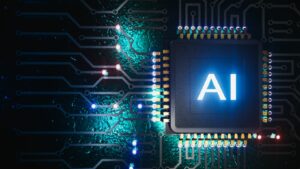Artificial intelligence (AI) has revolutionized the way we interact with technology, but its ethical implications have sparked intense debate. As an AI enthusiast, I delve into the complex landscape of AI ethics on ourearths.net. From algorithmic biases to data privacy concerns, navigating the moral dimensions of AI is crucial in our digital age. Join me as I explore the intersection of technology and ethics on this thought-provoking platform.
Ethics of Artificial Intelligence: Ourearths.net
The Definition and Scope of AI Ethics
I define AI ethics as the set of moral principles and values that govern the behavior and development of artificial intelligence technologies. It involves examining the societal impact of AI systems, ensuring fairness, transparency, and accountability in their design and implementation. The scope of AI ethics extends to addressing issues such as bias in algorithms, privacy concerns, and the ethical use of data.
Key Ethical Principles in AI

In AI development, several key ethical principles guide responsible innovation. These include principles of transparency, accountability, fairness, and inclusivity. Transparency requires making AI systems understandable and interpretable to users. Accountability involves establishing mechanisms to trace and rectify the decisions made by AI technologies. Fairness demands preventing discrimination and bias in AI algorithms. Lastly, inclusivity emphasizes the importance of considering diverse perspectives and needs in AI development processes.
Ethical Concerns in AI Development
Bias and Discrimination in AI Systems
When developing AI systems, it’s crucial to address the inherent biases that can be unintentionally integrated into algorithms. Bias in AI can lead to discriminatory outcomes, affecting groups based on factors like race, gender, or socioeconomic status. As an AI enthusiast, I recognize the importance of mitigating bias in machine learning models to ensure fairness and inclusivity. By promoting diversity in AI development teams and implementing bias detection algorithms, we can take proactive steps to minimize discriminatory practices in AI systems.
Privacy and Surveillance Issues
Privacy concerns are paramount in the realm of AI development, particularly regarding data collection and surveillance. As an advocate for ethical AI practices, I prioritize safeguarding individuals’ privacy rights. AI technologies often rely on vast amounts of personal data, raising questions about data ownership, consent, and security. It’s essential for AI developers to uphold strict data protection protocols and adhere to privacy regulations to prevent unauthorized access or misuse of sensitive information. Maintaining transparency about data collection practices and providing users with control over their information are key aspects of addressing privacy and surveillance issues in AI development.
Regulation and Governance of AI
Current Policies and Global Standards

I follow the ever-evolving landscape of AI regulation closely. As an AI enthusiast, I’m keen on the current policies and global standards shaping the ethical usage of artificial intelligence. The existing regulations play a crucial role in ensuring that AI technology is developed and used responsibly. By adhering to established guidelines and standards, organizations can minimize risks associated with AI deployment and protect users’ rights and privacy.
The Role of International Bodies in AI Ethics
International bodies hold significant influence in shaping AI ethics on a global scale. These organizations play a vital role in establishing guidelines and frameworks for the ethical development and deployment of AI technologies. I recognize the importance of collaboration among countries to create cohesive policies that address ethical concerns related to AI. By working together, these international bodies can foster a culture of responsible AI innovation that benefits society as a whole.
In navigating the complex landscape of artificial intelligence ethics, it is evident that prioritizing transparency, fairness, and accountability is crucial. As we move forward, embracing diversity in AI development teams and addressing biases are essential steps. The regulation and governance of AI play a pivotal role in upholding ethical standards. By adhering to existing policies and global frameworks, we can ensure responsible AI practices. Collaboration on an international scale is key to fostering ethical AI innovation and safeguarding societal well-being. Embracing these principles will guide us towards a future where AI serves as a force for good in our world.

